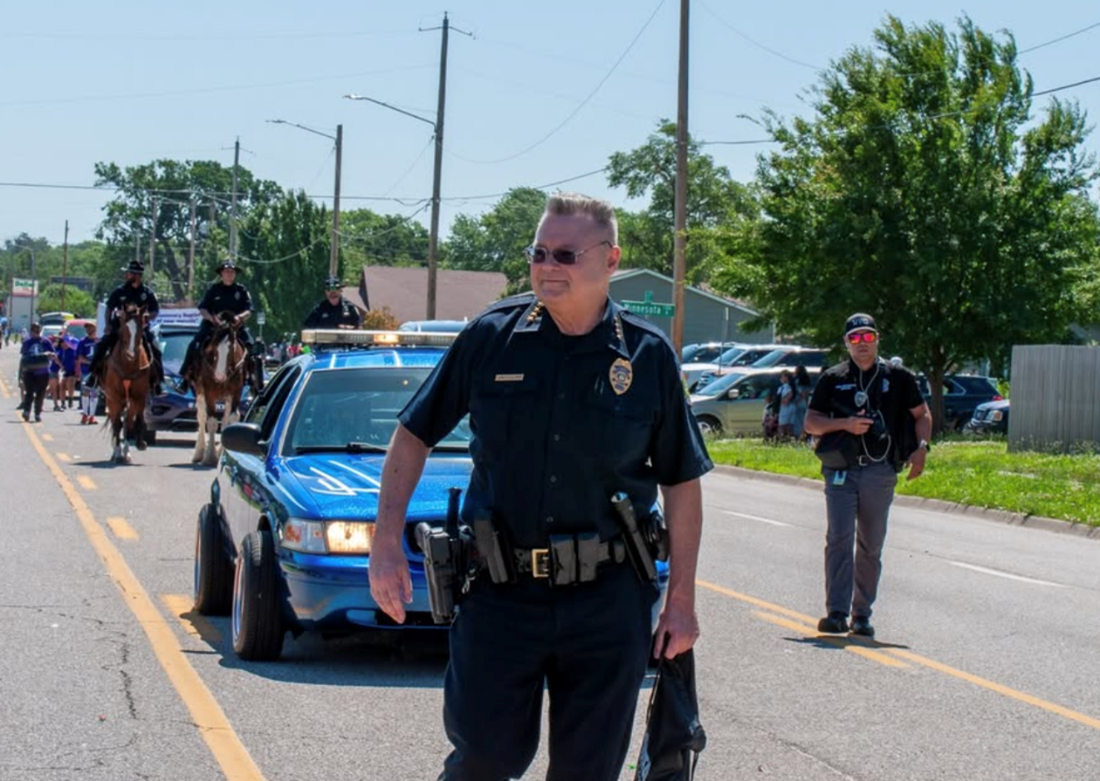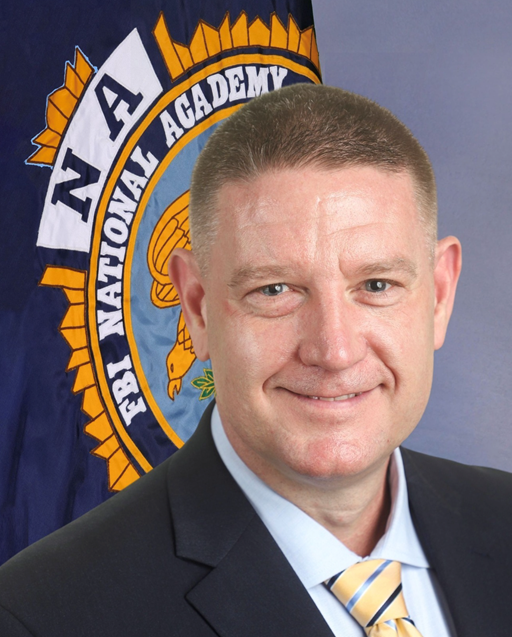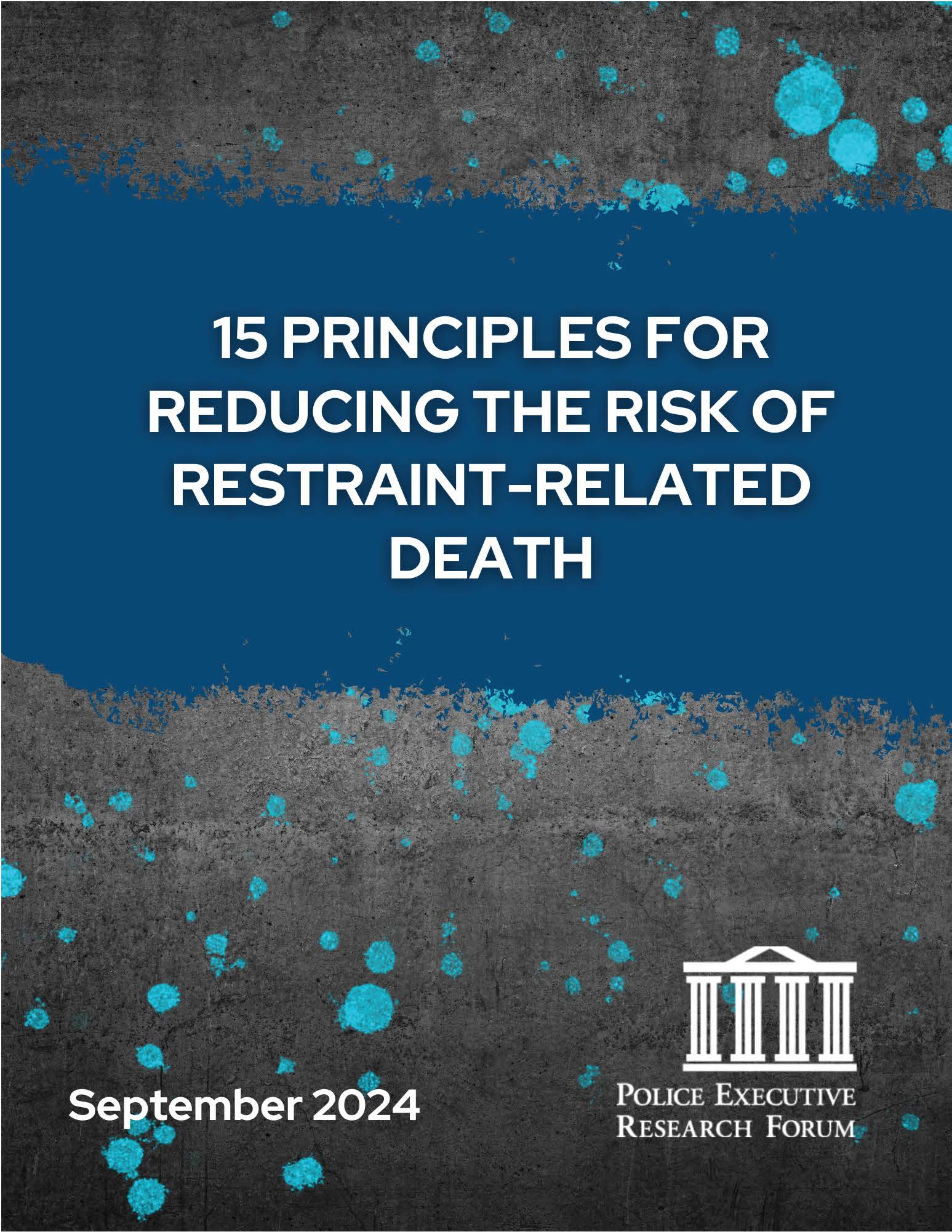|
August 30, 2025 How the Wichita Police Department is implementing guidance on avoiding restraint-related deaths
PERF members, In policing, a troubling situation often arises. This may feel familiar: Officers respond to a call involving a person exhibiting erratic or unpredictable behavior—a situation that makes communication, de-escalation, and control especially challenging. Police struggle to gain control of the person. When emergency medical services (EMS) arrive, coordination among responders is often disjointed. And just when it seems that everyone has finally managed to gain control of the person they were called upon to assist, it becomes evident that the person has actually become unresponsive. On average, 100 people die each year under circumstances like these. In 2024, PERF hosted a roundtable meeting with national experts and released a landmark report: 15 Principles for Reducing the Risk of Restraint-Related Death. The report offers clear, actionable guidance to help law enforcement agencies prevent tragic outcomes during or after police restraint. As any chief or sheriff who has faced one of these incidents knows, they are not only heartbreaking—they can also ignite intense public reaction. Preparation and training are essential to saving lives and careers. One leader who has taken this challenge seriously is Wichita (KS) Police Chief Joe Sullivan. After a 30-year career with the Philadelphia Police Department, where he rose to the rank of deputy commissioner, Chief Sullivan brought his experience and vision to Wichita. There, he has fully embraced PERF’s 15 Principles, integrating them into department policy and training in a way that sets a powerful example. In today’s interview, Chief Sullivan shares how he’s leading change at Wichita PD to reduce the risk of harm during police encounters—and how his department is working alongside other stakeholders, including EMS and dispatchers, to protect both officers and the community members they serve. He was joined by Captain Jason Bartel, who leads the agency’s Professional Standards Division. Chuck Wexler: Why did you want to implement these principles? Chief Joe Sullivan: I read what you put out one Saturday morning, and Captain Bartel and I had talked about this subject after hearing about cases across the country. We’ve seen police officers being arrested and fired, and we’ve seen paramedics being arrested and fired. There’s a lack of communication between the two about who’s in charge, who makes decisions on the administration of medicine, and what are best practices. So I asked Captain Bartel to make sure that our policies and practices were consistent with these principles. Wexler: How do you then go about implementing them in Wichita? 
Chief Sullivan: I told Captain Bartel that I wanted us to take a look at the 15 principles and compare them to our policies, procedures, training, and equipment. What do we need to change? What do we need to purchase? Captain Bartel, being a career member of the department, was then in a position to create working groups and identify the best people to lead and participate in those groups. Captain Jason Bartel: I reviewed the material, and it reinforced the direction the department was already going. We had a tragic incident where a juvenile died in custody in a county facility, and it really eroded community trust. A task force was established, and we had already begun addressing some of these issues. So this report reinforced the need for us to implement these principles to try to build back community trust while protecting our officers. After reviewing the principles, I created an internal work group to look at how we could incorporate them into our policy and training to ensure they were fully embedded within the culture of our department. We figured out how we could create training scenarios to reinforce these principles. Then we reviewed every policy that could potentially be impacted by one of these principles, did a comprehensive review, and drafted model policy language that we presented to our executive staff as well as our EMS partners. Then we started collaborating with outside agencies to produce training videos. Wexler: Chief Sullivan, how did you interact with EMS providers and other relevant outside agencies? Chief Sullivan: Once they saw what we were trying to accomplish, they were on board. We needed to let them know that we were not trying to be in charge and were going to write a policy that directed our officers to ensure that medical decisions belong to the EMS paramedics, and our officers will not interfere or try to influence EMS in any way. Once they saw that, they became excited to be involved. Because that’s something they are happy to see. Wexler: Captain Bartel, how did you incorporate this into your other training? Captain Bartel: When we started rolling this program out, several of our department members had just come back from learning about the updated ICAT training, which incorporates the 15 principles in the Restraints module. So we were able to incorporate that into our next mandatory in-service training. 
But we wanted to go beyond that. We wanted to let them know that these incidents happen here. They’re dealing with them a lot, and we wanted to personalize it to our organization. To reinforce the updated ICAT training, we created an online training that includes several scenarios where officers are taught to recognize signs of a medical-behavioral emergency and what coordination and communication with EMS should look like. We are in the process of shooting those scenario-based videos and incorporating them into a training that can be pushed out online to officers. It seemed like the easiest way to get the whole department trained and reinforce those principles. As a third phase, we are collaborating with EMS and emergency communications on scenario-based training. We have a plan to do another eight-hour training where they receive four hours of classroom training and then four hours of scenario-based training with EMS and emergency communications. Wexler: Chief Sullivan, have officers embraced these principles and ICAT principles in general? Chief Sullivan: This department really does embrace de-escalation, and we try to reinforce that. We have an award we give for de-escalation, to make sure we’re recognizing incidents where officers could have used greater force but instead used the principles of de-escalation. Usually the last thing I do during the day is make phone calls. When I see that the principles of ICAT were used on the street to disarm somebody with a knife or talk somebody off a bridge, I call those officers. It’s really important for officers to see the chief acknowledge and prioritize that. I also have a fantastic public information office, and we have our Well Done Wednesday program, where they make videos that we put online. Whenever possible, we show incidents where officers use de-escalation. The younger officers, especially, really embrace it. It’s fantastic to see. Thanks to Chief Sullivan and Captain Bartel for taking the time to share this information with our members. You can also see Wichita PD’s progress in implementing these principles displayed on its website. I hope everyone takes similar steps to implement these principles in their cities. Please note that we will have a 90-minute webinar discussing the 15 Principles on Thursday, September 18, at 1:00 p.m. Click here to register. Finally, please save the date for PERF’s Town Hall Meeting at the IACP Conference, which will be held on Sunday, October 19, from 1:00 to 5:00 p.m. MT at the Colorado Convention Center in Denver. Best, Chuck |

